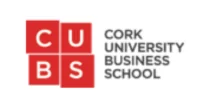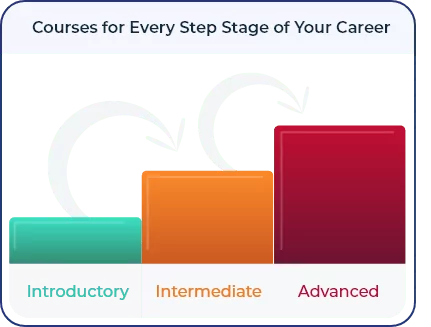If asked, most project managers are likely to say they prefer a harmonious team that gets along well together. Indeed, as a species we would appear to value good relations over conflict – the state capital of New Hampshire is Concord, not Discord and the most famous passenger aircraft was Corcorde, not Conflict.
One this page:
- The Pitfalls of Total Agreement
- Conflict as an Inevitable Aspect
- The Importance of Debate and Conflict
- Withdraw / Avoid
- Smooth / Accommodate
- Force / Direct
- Collaborate / Problem Solve
- Project Resource Management
The Pitfalls of Total Agreement
However, total agreement and harmony in a project team can be a problem. If the team agrees to everything the project manager asks for without question, then it is likely that you have a demoralized group. Perhaps in earlier projects, they voiced opinions and offered suggestions, but by now realize that no one is going to listen to them, so they just accept their lot, do the work and do not invest any thought in the project.
Conflict as an Inevitable Aspect
For a project management professional (PMP)®, this sort of team will come as a surprise. Because, while studying for the PMP® exam, the Guide to the Project Management Body of Knowledge (PMBOK® Guide) is clear: “Conflict is inevitable in a project environment”. It goes on to state that scarce resources, scheduling priorities and personal work styles are the main sources of conflict. On the basis of this, our PMP® might claim that the project is so well managed that there are no scarce resources, no priority issues and everyone’s work style is accommodated.
The Importance of Debate and Conflict
But is there debate amongst the team? Are people putting forward ideas? Are they questioning your plans and schedules? If not, the lack of conflict could simply be a lack of interest. By definition, a project involves some unique aspect and you need people who can think up innovative solutions to solve problems not seen before.
This leads to useful conflict – competing ideas vying with each other to be heard. The wise PMP® needs to manage these conflicts and encourage the discussion, while calling a halt to name calling and physical violence. Thanks to your PMP® training, you have five techniques to deal with conflicts:
Withdraw / Avoid
This is probably the least effective solution. If there is a conflict, there is no point in sweeping it under the carpet. The person (or people) with the issue will become disengaged from the project and is likely to enter an unofficial work-to-rule mode. However, a temporary withdrawal from a conflict can be very productive. If there is an argument between two team members about how to carry out a particular task, the project manager can diffuse the situation by asking the two to prepare their arguments and schedule a meeting to select the best way to proceed.
Smooth / Accommodate
Here the PMP® tries to emphasize the areas of agreement between the warring factions. Whatever is left is discussed, but the whole goal is to preserve harmony. This sort of approach is not very satisfying – people are urged to back down on parts of their plans for the sake of peace and quiet. This approach tends to involve “shuttle diplomacy”, where the PMP® negotiates with each party separately. It can lead to breakdowns in trust. However, it might be helpful to diffuse a situation where tempers are running hot. However, it would need to be followed up with one of the following approaches.
Compromise / Reconcile. If you have ever tried reading legal statutes, you will understand this conflict resolution strategy. To get legislation through a parliament, politicians indulge in horse trading – I will concede A if you concede B. Compromise can be very effective if you end up with the best parts of all ideas. However, all too often all the ideas get diluted in the name of compromise and you end up with a camel (a horse designed by a committee).
Force / Direct
When agreement is impossible, the project manager has to pull rank and make a decision. While this breaks the log jam, it can leave bruised egos in its wake. Try to get some element of compromise into your decision, but always explain clearly why you are making the choice. Show how the chosen solution better meets the goals of the project.
Collaborate / Problem Solve
This is really the best way to resolve any issue. Get the disagreeing parties together to work out a solution. From your PMP® courses, you will have studied facilitation techniques, such as brainstorming, meeting management and problem solving. Now is where these pay off. In a technical dispute, get the parties to present their ideas. Have others in the team give their opinions. Make it objective – the goal of the exercise is to find the best outcome for the project.
Any conflict relating to a project issue – a design direction, a quality metric, etc. – can be discussed objectively. The project manager can focus the argument on the good of the project, rather than the personal views of the team members. However, there are cases when there are personal issues that affect team performance but again, your PMP® training will help you out here.
Project Resource Management
I had the experience where one of the team played indoor soccer at lunchtime. He played in the same outfit he worked in and it was not long before his office mates were making strong representations to me. It is not easy to confront someone about their personal hygiene but there is a very effective way to avoid this sort of problem and you will find it in the Project Resource Management section of your PMP® training materials. Remember the Plan Resource Management process? This is where the Team Charter is initially developed. At the start of the project, when the team is in the “forming” stage, lay down the rules. This is especially important in agile teams, where the whole team are closely gathered. Bring up all the sensitive issues then – personal hygiene, eating at desks, phone usage, etc. – and write out the agreed ground rules into the Team Charter. Post this somewhere prominent.
Whether you have PMP® certification or not, as project manager you will need to deal with conflicts. For best results, be guided by two principles: (1) conflicting ideas are good and need to be explored – do not discourage suggestions and (2) do not let problems fester.
For more information on conflict management, please consider one of our project management training courses which are held online in our virtual classroom. Find out more by contacting us.

















